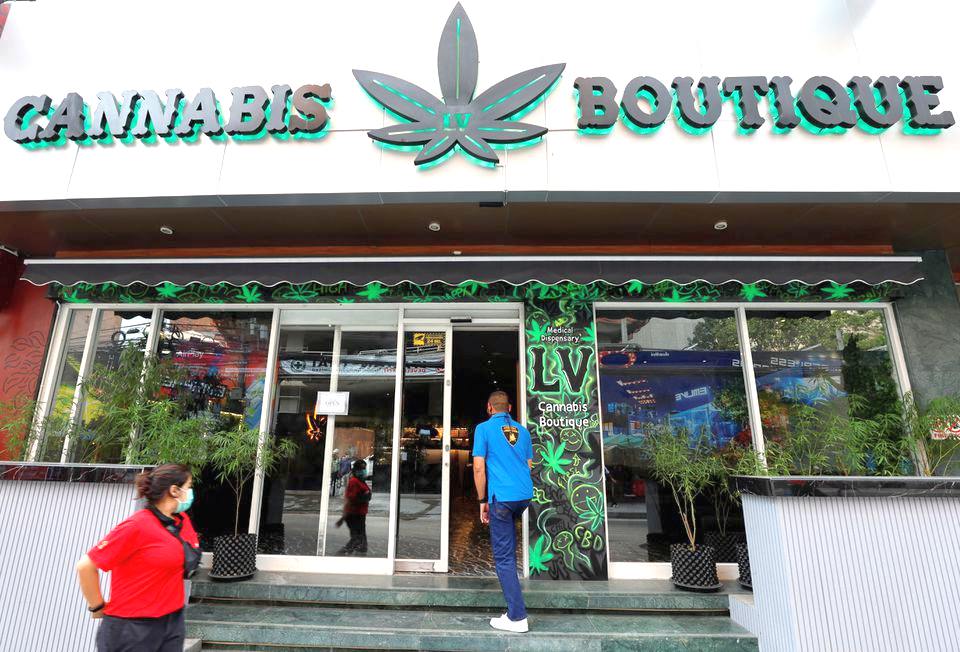
In order to achieve post-election constitutional power, Thailand’s Pheu Thai party finds itself abed with its former enemies allied to the military junta which seized power in 2014. It may seem a wobbly coalition, but it’s likely to last several years. Pheu Thai fears that its erstwhile popularity will dip, or perhaps ditch, in a fresh general election. The military-backed parties may face wipe-out as younger Thais in particular clearly prefer the radical reformist policies of the Move Forward party now consigned to sit on the opposition benches. That’s despite Move Forward having won the most seats in the May 2023 general election.
The most obvious consequence of the latest power alignment in Bangkok is excellent news for the marijuana industry and its thousands of retail outlets throughout the country. The total delisting of the drug as a narcotic in 2022 was a flagship achievement of the Bhumjaithai party which is (as usual) a vital component of the new coalition. During the recent election, Pheu Thai had voiced concerns about the weed and threatened to return it to narcotic status. Nothing more will be heard of that. Instead, the new administration will introduce a bill to clarify some ambiguous details such as business registration procedures, cannabis cafes and permissible marketing strategies. Pot smokers can rest easy, at any rate in private.
Thai authorities are likely to continue the policy of welcoming international tourists, no matter who and where from, to offset the weak numbers arriving from China. That country, prior to covid, was the principal recruitment source. So expect marketing campaigns, promoted by the Tourist Authority of Thailand’s offices abroad, to describe the charms of Siam whilst mentioning the welcoming atmosphere for niche-market Muslims, gays and medical tourists as well as tour groups and independent travellers. Thus immigration and visa regulations for short-term tourists are likely to remain fairly open – TM30 address registration notwithstanding – although expats on annual extensions can expect to see tightening of the rules regarding cash deposits and comprehensive medical insurance, as anticipated recently by deputy national police chief Surachate Hakparn. Whether the well-known immigration rear doors and escape hatches will remain unscathed remains to be seen.
Investments in large infrastructure projects to benefit the long-term economic and commercial development of Thailand will continue, especially those in the Eastern Economic Corridor which includes Pattaya. For example, plans to create 4 billion baht cruise port at Bali Hai are sure to be approved provided foreign backers are convinced about the potential. Not to mention an overhead monorail facility to link Pattaya rail station with the city center which needs to be coordinated with the fast-track train services linking U-tapao airport with Bangkok. Although such developments are years away from potential completion, Pattaya expats can expect to see a continuation of the crane, digger, tractor and traffic upheaval of the recent past. Progress demands temporary inconvenience, or so they say.






